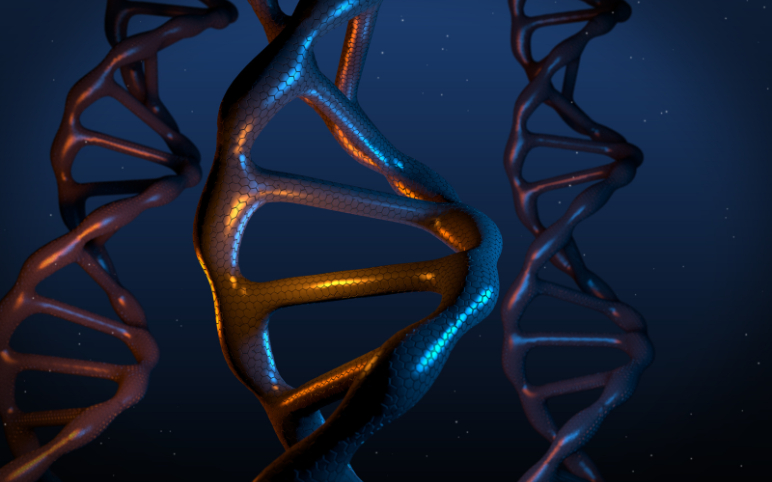Antitrypsin Deficiency Pipeline
May 15, 2019
Many Pharmaceuticals companies are working across the globe towards the development of new treatment therapies for Alpha-1 Anti-trypsin Deficiency to fulfil the unmet needs of Anti-trypsin Deficiency Therapeutic market as discussed in the previous article.
The Alpha-1 Anti-trypsin Deficiency market is expected to change in the future owing to the improvement in the diagnosis techniques, increasing awareness of the disease, and the accelerated funding in healthcare. The launch of emerging therapies during the forecast period of 2019-2028 has also given Alpha-1 Anti-trypsin Deficiency market a boost.
Emerging Therapies
Key players such as Mereo BioPharma (MPH-966), Kamada (Inhaled AAT), Alnylam Pharmaceuticals (ALN-AAT02) and Adverum Biotechnologies (ADVM-043) are involved in developing therapies for Alpha-1 Anti-trypsin Deficiency.
MPH-966 (Alvelestat) is an oral neutrophil elastase inhibitor being developed as an innovative new therapy for the treatment of Alpha-1 Anti-trypsin Deficiency by Mereo BioPharma, which is currently, in the phase II stage of development. However, Kamada is developing an inhaled formulations of AAT administered through the use of a nebuliser, for the treatment of AAT Deficiency. The company believes that Inhaled AAT for AATD will significantly improve the patient’s disease condition and the quality of life of the patients versus current invasive weekly treatment that requires uncomfortable infusion, consumption of time and administration by a medical professional. If approved, Inhaled AAT for AATD is estimated to be the first AAT product that is not required to be delivered intravenously but, instead is administered by a user-friendly, lightweight and silent nebuliser. Inhaled AAT for AATD has been designated as an orphan drug for the treatment of AATD in the United States and Europe.
Anti-trypsin ALN-AAT02 is a subcutaneously administered, investigational RNAi therapeutic dug targeting alpha-1 anti-trypsin (AAT), which is in development for the treatment of AAT deficiency-associated liver disease (alpha-1 liver disease). Alnylam Pharmaceuticals is currently developing it and is in phase I/II stage. Adverum Biotechnologies is currently developing ADVM-043 (AAVrh.10-A1AT), which is in phase I/II phase of development. It is designed as a single-administration treatment to induce long-term A1AT protein expression potentially.
INBRX-10, which is being developed by InhibRx, is currently in phase I stage of development for the treatment of Alpha-1 Anti-trypsin Deficiency. It is an Fc-fusion protein-based therapeutic candidate comprising a modified recombinant version of human alpha-1 anti-trypsin or AAT. INBRX-101 is designed to sustained enhanced plasma concentration with a less frequent, monthly dosing regimen.
Improved understanding of the Anti-trypsin Deficiency and comprehensive research in the area of the development of unique drugs can increase the knowledge of the related health issues, along with a large number of upcoming pipeline drugs, is expected to create a lucrative environment for the growth of AATD treatment market. Treatment approaches for AATD are expected to witness dynamic growth in the future due to the anticipated launch of new product approvals.
Downloads
Click Here To Get the Article in PDF
Recent Articles
- Unmet Needs in the treatment of Antitrypsin deficiency
- Sanofi’s Qfitlia Becomes First FDA-Approved Therapy for Hemophilia A or B; FDA Approves AstraZene...
- CHMP Reviews Takeda’s Qdenga; FDA Sets Date for Gilead’ Trodelvy Review; Odyssey’s Announce...
- Alpha-1 Antitrypsin Deficiency: Symptoms, Treatments and Key Companies in the Market
- Limited Availability and Lack of Access are Unlikely to Hinder the Billion-Dollar Alpha-1 Antitry...
Downloads
Article in PDF
Recent Articles
- Alpha-1 Antitrypsin Deficiency: Symptoms, Treatments and Key Companies in the Market
- CHMP Reviews Takeda’s Qdenga; FDA Sets Date for Gilead’ Trodelvy Review; Odyssey’s Announce...
- Limited Availability and Lack of Access are Unlikely to Hinder the Billion-Dollar Alpha-1 Antitry...
- DelveInsight’s Respiratory disorders based Gene Therapy Reports
- Sanofi’s Qfitlia Becomes First FDA-Approved Therapy for Hemophilia A or B; FDA Approves AstraZene...




